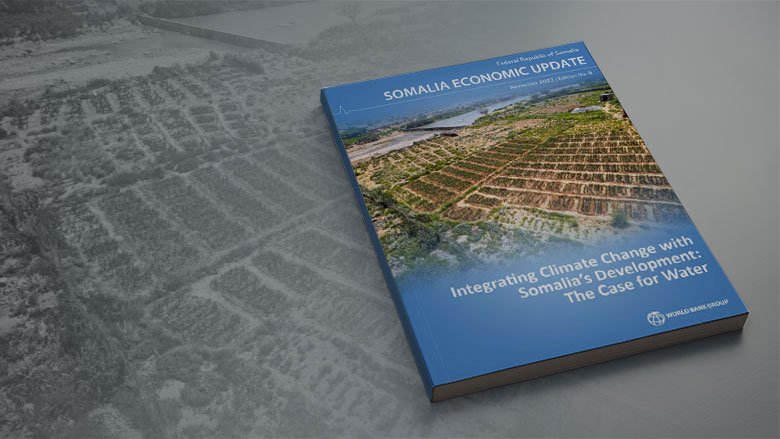NAIROBI, November 30, 2023 ¨C The eighth edition of the World Bank's Somalia Economic Update series offers an analysis of the latest economic trends and future growth prospects. It also advocates for the integration of climate change considerations into Somalia's growth agenda. By providing valuable insights, the Economic Update seeks to support the policymaking process in Somalia and foster a national conversation on important topics related to economic recovery and development.
This edition of the delves into the important relationship between water, climate change, and Somalia's growth agenda. It emphasizes the pivotal role of water in driving Somalia's prosperity. To ensure resilience and prosperity, the country needs an integrated economic policy that prioritizes water.
The Update also notes that access to water is a matter of survival and is a catalyst for Somalia's transition from fragility. It emphasizes the importance of water in improving household resilience to shocks. Whether it's providing water for human development, supporting urban development, creating job opportunities, or driving long-term economic growth, water lies at the heart of Somalia's progress.
"Water insecurity, including exposure to floods and droughts, is amplified by environmental degradation, deforestation, and climate change," said Chantal Richey, World Bank Senior Water Supply and Sanitation Specialist. ¡°Managing water better is critical for helping Somalia cope with climate variability and economic shocks, particularly from floods and droughts."
Water scarcity and climate variability pose significant challenges to Somalia's economic development and the Update presents a compelling case for harnessing the potential of water resources to build resilience and stimulate growth. By effectively utilizing green and blue water resources, Somalia can pave the way for a prosperous future.
In addition, Somalia's vulnerability to floods and droughts necessitates a well-planned and coordinated approach to water management. By implementing effective strategies, the country can mitigate the impact of these shocks and ensure a more stable and resilient economy.
Water: Sustaining Life, Powering Economies
Achieving sustainable water management requires more than just policies and plans. Strengthening water governance and infrastructure is vital for translating intentions into actions. There is a need for improved institutional frameworks and coordination among the country¡¯s authorities to enhance the efficiency and effectiveness of water management in Somalia.
To build a strong economy, Somalia must have fair and effective policies and regulations for managing water resources. This means making sure everyone has access to water and reducing conflict around water. By giving water a top priority in economic plans and decisions, Somalia can create a sustainable and prosperous future.
The Update presents opportunities for change and innovation such as a whole-of-society water dialogue, emphasizing the importance of coordination and collaboration among stakeholders.
Somalia also has a chance to improve its resilience and sustainability by adopting a circular economy and ecology. This means finding new ways to use resources efficiently and reduce waste. By being innovative Somalia can protect the environment and boost its economy in the long run.
Water holds the key to Somalia's economic resilience and growth. The integration of climate change considerations into the country's growth agenda is essential for navigating the challenges posed by water scarcity and climate variability. By effectively managing water resources, strengthening governance, and embracing innovative approaches, Somalia can unlock its full potential and build a thriving future for its people.
